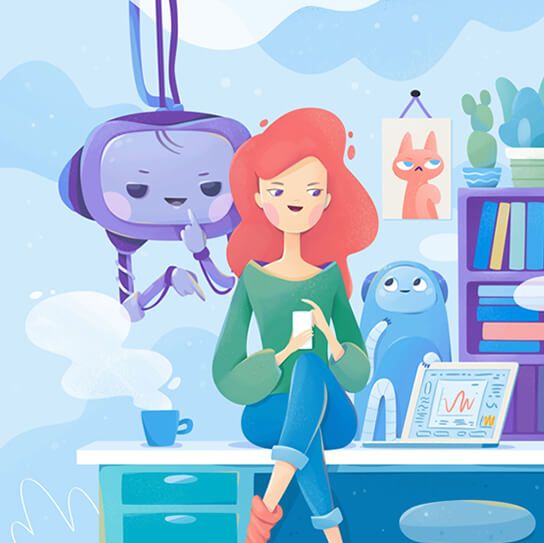Companies understand the investment of employees, and how keeping them around for years is more valuable than a high turnover rate. Making sure employees are happy, challenged, and fulfilled leads to the best returns and most long term gains. The companies that understand what their people are looking for and put time and money into those areas seem to be more successful in employee retention.
But you’ve been there, right?
You understand what the daily grind is like. You want to be heard, seen, and valued. This takes on many shapes and sizes at different companies, but one way is through investing in team dynamics with learning tools such as team based assessments.
I don’t know about you, but when I’ve worked somewhere that did a personality assessment for my team, I actually got excited. I wanted to learn more about myself and areas I needed to improve in just as much as my boss wanted to figure out my strengths and how to use them appropriately towards new projects.
Since companies have started paying more attention to the investment of their people, they’re starting to use different tools for those assessments. Some are simple questionnaires, which means the person is often evaluating themselves.
There are pros and cons to this approach, as sometimes we all want to appear a certain way and can skew our answers based on this bias. Let’s face it, we all know someone who believes they’re a cheerful, upbeat motivator for their team, but honestly, you would never describe them using those words. Not ever. Not even on a great day.
Some people cringe at these types of tests, and swear they’re not useful, or insightful. But, I beg to differ on this – taking the time for a group evaluation can lead to growth that may otherwise stay stifled due to the habitual day to day shuffle.
When you’re buried in cases or customer calls, who has an hour to sit around contemplating feelings or how efficient your team is functioning?
However, making it an actual goal with a purpose, and intriguing while you’re at it, can lure even the most pessimist of team members and bring everyone on board.
As with most technological advances, assessments have really had some improvements over the recent years. One of these really cool evaluations is referred to Multiplayer Online Game-Based Learning. So, what is game based learning, exactly?
Just like with the video games we grew up loving (or, maybe just tolerated on occasion), there’s a problem or a puzzle to solve, except now it’s in a group environment, and the end goal is more about analyzing our choices, actions, and processes. However, in this situation, we would advise you not call your teammate “stupid” and throw things like you may have when you were seven years old. (it happens!)
Doesn’t that sound pretty cool!
Yeah, we think so. But I’m sure you’re wondering how in the world that helps you to do your job better in your work environment.
Let’s say, for example, your team had an issue with customer satisfaction decreasing, and your team couldn’t quite meet the demands to succeed with quality deliveries for your customers.
Management may have one theory on why this happens, but the team itself may have another (or more) based on different perspectives. Your team then gets together for a video game of sorts, that completely immerses all of the players so you’re solely focused on the task at hand.
As “problems” need to be solved during game play, evaluations take place at certain decision points. There are also facilitated discussions (with trained experts) on how the situation could have been better handled, both as individuals and as a team.
Players usually gain self realization at this point, on areas in which they need to improve, that can be carried forth into the work environment. Maybe it’s more clear communication, trust for their team members, or discovering a confidence that makes them more assertive in a productive manner.
Either way, what you learn about yourself and your team members is valuable enough to apply to the problems your department or team may be facing on a larger scale.
The really great thing about this is that it has a pretty broad application.
Multiplayer Game-Based Learning can be applied not just to problem solving, but also other areas that may need improvement, such as collaboration, communication or strategic thinking. This is ideal for many departments across many different types of businesses, both big and small.
But what about the science of this? Can this really facilitate change? Absolutely! According to a McKinsey & Co study,
emotional experiences have higher recall than experiences that are not rooted in any type of emotion.
This functionality of our brain allows us to recall really happy (or, unfortunately, sad) times from childhood or other major life events. When being immersed in a virtual scenario with your team members, you’re likely to experience emotions such as frustration, happiness, or even anger. But that’s great (no, really!), because then you have so much more to gain from the whole experiment.
Those fresh emotions allow you to see things that may have been previously suppressed, and being in the moment can help you turn those feelings into words and work towards resolution. And that, my friends, is the name of the game.
Overall, using an assessment as a Multiplayer Game-Based Learning is a great tool to learn more about yourself, your team, and areas of strengths and weaknesses. Plus, it is a really fun time, too! And who doesn’t want to have fun at work?!
